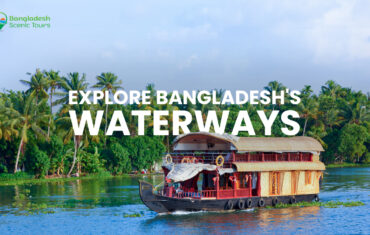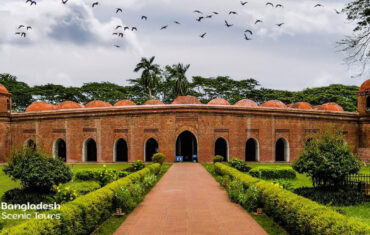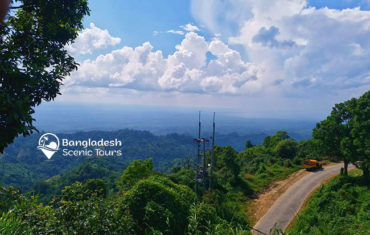CHITTAGONG AND BACK TO DHAKA
We spiral down out of the hills. Mustaq has a genius for careening around blind curves. By now we trust him. Eyes stay open.
They are not prepared for Chittagong.
The landscape is post-apocalyptic, Mad Max with waterwings.
Chittagong is the biggest port in South and Southeast Asia after Singapore. It has a specialty. It eats old ships. The stripped carcasses provide over 90 percent of the country’s steel. The ecological cost is unfathomable.
Beached in shallow water, the ships are naked, behemoths, vulnerable. They balance on their keels, at sea deep below the surface, now exposed, stories high above our puny boat. Most are partially stripped, some just piles of innards, jumbled over oil slicks. One is a new arrival, untouched. We get close to its single propeller and rudder and have a ‘Titanic moment’, a flashback back to the scene in the film just before the ship dives. Titanic’s propeller was cinematic, clean. This one is slick, but not pristine, patina-ed with memories of the sea. I wonder how many it has ridden, and why the ship is here. And what its next incarnation will be. Maybe something airborne, free of the sea. It’s halfway there high above us.
Obaidul’s brother invites us for excellent coffee in the Dhaka Yacht Club. We never do figure out how he manages that, but he can, so “Why not?” as Obaidul says a dozen time a day. We close our 18 days with a toast.
FAREWELL AND BACK SOUTH ON OUR OWN
We’ll follow the same route down to Barisal we took 2 weeks ago, this time in the daytime. We all have window seats in two-story seat rows, with lots of overhead storage. I slump into H6, deep , wide, cushy, airline’ business classy’, best seat in the house for the show unfolding in the row in front of me.
A family of 3 adults—I’m guessing, son, Mama, and Dad — takes 20 minutes to work out how the 3 will sort into their 3 seats. 3 people. 3 seats. Not hard. Wrong. Tickets shuffle, then people shuffle, then tickets again, then people again. Mama is not happy. Mama squawks. Dad shrugs. Son moves everybody again. Mama is not small, a full pedicab-load of swirling cloths and attitude, and not easily moved. I’m thinking forklift. They shoehorn Mama into a row by herself, right back where she started. Things are quiet for a few seconds until Son sits down next to Dad. Mama begins. I don’t understand Bengali, but I have some experience in ‘Motherese’. “Him you sit next to. Me who pushed that big head of yours out of this body for sixteen hours of suffering…Me you abandon…..” Son sighs, gives up, moves. They are back where they all started. But now Mama is in charge.
We are on the Ganges, the great sacred river of Hindu India, in its final push into the sea through Moslem Bangladesh. Some of this water may be from the great Brahmaputra River. If so, then I have ridden on 5 of Asia’s greatest rivers, the Yellow, Mekong, Irrawaddy, Ganges, Brahmaputra, all spawns of the Himalaya snows. Billions of people live because of these rivers.
This one spreads as it flows south, embracing its end, so wide now we can’t see the shore or any of those billions.
Six hours later, Barisal dock is a clog of pedicabs, tuk-tuks, baggage, and touts. We see our hotel name on a tower high over the mayhem an easy walk just down the road. The Rodela is clean, cheap ($20 for a double), and has a rooftop restaurant with good food, and fresh-squeezed orange juice. The fried dumplings are magnificent. We meet the kitchen crew and are immortalized in 700 selfies. We’re the ones without the aprons and chef’s hats.
Hot water would have been nice. It was on the menu for the room, so to speak, but not available.
We perfect our whirling arabesque through the traffic mayhem, trying it with eyes open, and follow a side street down past a floodlit minaret. The street is draped in Christmas lights that hang over it, electric stars. The real ones are the other side of the grey murk that passes for air in Bangladesh cities, invisible.
The street throbs with food stalls, hawkers, and shops. In one I find the same Italian ripoff rubber sandals Obaidul had, and for the same price he paid. Shoe Guy juggles 3 pair, in sizes 41, 42, 43, suggests 42 and the deal is done.
I’m guessing were the only foreigners in town tonight. We’re certainly the hot show. Whenever we stop, the crowds join us, always friendly, kind, curious, and always beginning with “your country?”, and following with a big smile. We are adopted by 2 young guys and shanghaied off to try the local curd. It’s not the purist version, but topped with ricotta-like cheese, puffed rice and a cup of tap water, the latter never a wise choice. (Spoiler Alert: we survive.) The guys speak rapid-fire English, proud of their first conversations with foreigners. The words trip out and over one another. Plans erupt from the flow for the guys to join us at our next stop, 5 hours south in Kuakata on the Bay of Bengal. They get semi-finalized via late night messaging back at the Hotel Rodela, but come to naught, rained out in a ‘dry season’ deluge.
There’s a street festival, or riot, or demonstration, or party for a very large family on the street outside the hotel until midnight, free entertainment. LOUD, free entertainment. It could be worse.
And is, the next night.
BARISAL TO KUAKATA
The 8 foot mangey gorilla should have been a clue….
Remember that Marx Brother movie in which they keep stuffing people into that tiny stateroom until it explodes? Charge $2.50 for the 5-hour version and dub it in Bengali. That’s our bus ride south to Kuakata and the Bay of Bengal. There isn’t room even for the ashes from Groucho’s cigar. I think I might be briefly engaged to the guy with a henna rinse on his beard who shares knee space with me.
“It never rains this time of year” promised Obaidul. Kuakata hasn’t listened. The city is drenched in torrents above and mud below. My rubber sandals are packed away. The leather and cloth ones on my feet wish they were. We grab the first electric tuk-tuk we see, show the driver the name of our hotel. He nods, and heads off in exactly the opposite direction promised by Google which shows a direct route, 2 kilometers straight down the beach. Twenty minutes later we’re nowhere near the water. The tuk-tuk is all out of tuks and we’re out of the tuk-tuk pushing it through deep wet sand. Out of the mire, it coughs a hopeful tuk, then a second. Ten minutes later Tuk-tuk Guy crests a hill and the Bay of Bengal fills the horizon. The ‘hill’ is a dike, berm, defense against rising sea levels. The rain isn’t helping. He stops a few minutes down the berm and points inland. “Hotel“. There is a gate, a path, a sign, and an 8-foot gorilla. Can cement get fleas and mange? We skirt the scrofulous road company King Kong and follow the brick path past tin shacks, decaying lounge chairs, and collapsed fences.
The place looks like the set for a Stephen King movie. I scare up two clueless teenagers who have no idea who we are or why we are there, in any language, and definitely not in English. We have had reservations via Booking.com for 2 months for a two-story, two room guest house with ensuite bathrooms in each room ‘set in a lovely garden on the beach’. The kids lead us past unsuccessful trees and a swamp to a one-story tin shack, with two rooms, and an outhouse off to one side, accessible through the rain. It’s perfect for the ‘derelict camp with chain saw murderer’ scene in the movie.
That’s the good news.
Inside, the 12 inch fluorescent tube is dim, but not enough to hide the sodden and sagging ceilings. Blackened, dripping, and festering they have pulled away from the walls. Ostriches could flutter through those gaps. Mosquitos are a lot smaller.
The ‘caretakers’ and we share no language. We mime eating. They shake their heads. We mime pushing the keys on a cell phone. They produce one. Obaidul to the rescue, even though we are no longer on his tour. We call him. He tells them we need food or will eat them. And we want tuk-tuks. They make some calls. About 8 o’clock a guy appears out of the rain. He speaks English, sorts things out and leads us to the promised two-story story guest house. The same set designer has been busy here, but with a few flourishes, all upstaged by the old deposit of shit in Elfie’s toilet.
Leaving is not an option, in the rain, in the dark.
We do get food, and it’s not bad. It’s 9 o’clock. We’re in for a long night.
The bed is big, family-size, and pseudo comfy. The mosquitoes are too big to get through the ceiling gaps.
The 8-foot mangey gorilla should have been a clue…
KUAKATA
He pounds my head with his fist…
There is breakfast. The Clueless Two mime driving a tuk-tuk and point up the brick path to the gate. Rescue!
Two electric bikes await on the beach. We nod, committed. The guy from last night tuk-tuks up offering a ride into town, but we stick with the electric bikes. A nod is a contract. We climb on. Dennis’ driver sings as he drives us down the beach, a straight run of 10 minutes. The bikes whirr. We get off only once to push. Imagine a tricycle with a platform mounted over the two back wheels. Imagine two of them, loaded with luggage and three foreigners, appearing out of the morning mists from the beach at the end of Kuakata’s main drag. Cleopatra’s entrance into Rome between the paws of that giant sphinx got less attention.
Last night’s guy offers us HIS hotel. We are skeptical, but “Why not?” Kuakata Guest House is balm. It’s small, spit-polished, and bright, the rooms are large, with 2 double beds, two armchairs, a desk and chair, and clothes rack sofa, coffee table, and big bathroom. There is hot water, TV, AC, huge ceiling fans, and WiFi. Big windows the width of the room overlook a garden. The Guest House is set back from the road, and quiet. Cows moo in the front yard. It’s lovely. Manager Halal gives us a discount “because other places last night and you foreign guests from America”. Our spacious double costs $24. (We never do find out how or why he turned up at ‘other place last night’ or this morning.)
Hot showered and cleansed of the taint of ‘mangy gorilla land’, we practice traffic arabesques until ready for Kuakata’s streets. But, there’s only one, and the traffic on it aimiable, not voracious. The speed is one click above amble. The singing bike driver from this morning waves as he whirrs by, heading inland, empty.
Four barber shops in a row, all open to the road, and right in front of us, are too much of a suggestion from the universe to ignore. I need a beard trim badly. My mustache has become a strainer. Bangladesh is beard territory. All the guys have ‘em, from Stud Muffins on up. I will be in good hands.
Barber Guy looks me over, waves me to the chair, does a toreador twirl to drape me in cloth, neck to waist, and gets to work. He is a shear artiste. I swear he cuts each beard hair individually, short on the sides, longer on the chin, arched across the mustache, the sharp snap of his long narrow shears working sculptural magic…miracles in my case. I look great, move to get up, but he pulls me back into the chair. He rubs a white powder gently onto into my face, waits. It turns brown. He adds another ungent, a white paste, pulling, pinching my cheeks like an old Auntie who substitutes face violence for a name. He does not tell me I am “sooo cute“. He massages my face, rubbing off dry skin—and my suntan. He adds oil, and works my scalp, pulling my hair tight, then rubbing massaging my scalp. He pounds my head with his fists, gently. I sink into canine devotion to those ‘good hands’. Dennis is getting the same treatment in the next chair—plus back and shoulder massage. They serve all 3 of us hot coffee. The total hedonism costs $12 for the two of us. Selfies are inevitable.
Primped and primed we continue down Kuakata’s main—and only—street seaward. We walk down the thick ripples of sandbags stacked to protect the beach end of Main Street from increasing high tides. This is ‘Lounge Central’ or sun-hogging dogs and families of goats who always know the best places. They don’t acknowledge us. There’s not a baaaa or a tail thump. Or a selfie.
The Bay of Bengal is not blue, or even close. It is the color of all the soils the great rivers grab in their fall from the Himalayas. The beach is the same color. It is a gentle slope into the Bay, solid then shallow liquid, both grey. People splash, knee deep, the women in saris or the long dresses of Moslems, the men in rolled up long pants, or longyis, the kids fully dressed. Some young guys have discovered knee length ‘surfer shorts’, on and off the beach.
For 40 Taka each—about fifty cents— we claim spots on long wooden loungers facing the Bay, due south. The next landfall is Antarctica. A boy rearranges our umbrellas as the sun moves west towards sunset. The long rows of umbrellas and food carts anchor color to the beach. Saris, shawls, and the yellow tee-shirts of the beach photographers move color against the grey, then towards us as we are discovered. The photographers—10 Taka a shot—find us first, huge Nikons primed to go, but second fiddle to tongues trying out English. Whole families crowd around, the women not shy, the kids not sure. The selfie is the universal solvent.
Back on Main Street we stop for tea. Tea Guy is so staggeringly handsome Elfie decides one month in the ‘Hunks of Bangladesh Calendar’ will not be sufficient. We dedicate a whole year to him. Thus, Calendar Guy is born. We expect to drink a lot of tea.
The beach loungers call, Sirens of the Sands. We answer.
Well lounged, we climb up the sandbags, nodding at the goats. They don’t have cameras. They ignore us. At the top, Dennis’ singing Electric Bike Guy offers a us ride back to the hotel…”no money”. It’s tempting but…were headed up Main Street for our afternoon double dose of tea and Calendar Guy.
Its our third day. The Lady and Her Two Husbands are looking familiar to folks along Main Street. They wave at us. Electric Bike Guy always stops to say hello and offer us a ride. Today, he throws his arms in the air and twists them. Other Electric Bike Guy has had an accident. But…he’s OK. News delivered, he whirrs off. All Barber Shop Guys wave us in, wrap us in selfies and order in paper cups of cappuccino. The latest prints are big hits. Two white-plastered customers, mid treatment, watch in reverse through the wall of mirrors, “?lleh eht tahW” clear on their faces under the mud.
Lady and Her Other Husband walk through the ripples and climb into a canoe, then into covered boat and wave across the silvery water. They’re off to see giant red crabs and muck around in the mud.
I head home to nurse a rebelling digestive system that has sent an ‘Evacuate!!’ order through my nether regions. To quote Mrs. Wolfowitz from ‘The Big Bang theory ‘ “Its like an upside down volcano in here. Who knew one tukas could hold so much water!”
Extra underwear might be a good idea.
I head back up Main Street, the leftover wide space between rows of open stalls selling, making, cooking, serving up anything anybody needs, Kuakata’s al fresco Walmart. Nether Region rumbles No, no, and really no!” at the red pomegranates, stalks of bananas, bins of apples and oranges, and tea shops and restaurants.
My Bengali does not run much beyond basic food words, useless and ill-advised in my current condition. ‘Underwear’ is linguistic terra incognita. A shop with rows of flapping ‘surfer dude’ baggy shorts suggests familiarity with the right part of the anatomy. I reach into my pants and pull out the waist band of my current version. Clothing Guy is on it in a flash. He’s a jolly sort inside the hennaed fringes of his long beard and spiralling head scarf. He looks at me and delivers his judgment. “Big”.
A lot of him jiggles inside his robes, Super XXXXXXXL and growing, when he hops up on his counter, swivels on that abundant fulcrum and soft lands on the other side in a pile of plastic bags. He bends. Arms disappear. Bags fly. He unties one, pulls out a snazzy pair of jockies in black and green, with a questionably placed red racing stripe. He stretches the waist band. “Big”. Big is relative. Waists on the local fauna—-present henna–ed company aside— seem to top out at about 30 inches. I look dubious. He dives again, roots around, surfaces, unties another bag. It must be his personal stash. The shorts could wrap the Hindenburg. I go for the first pair, with the racing stripe, plop down the 100 Taka, and walk out with my one buck Bangladeshi Butt Huggers.
I crave an apple, buy two, eat one, and retire to Kuakata Guest House within a quick stumble from the bathroom and wait for apple pectin to do its coagulating magic. It’s a gamble that doesn’t work. Nether Regions keeps dealing itself Royal Flushes.
But, I have insurance, one buck’s worth.
KUAKATA-BARISAL- DHAKA
It’s time to go.
The Lady and Her Two Husbands walk down Main Street to the Barisal special express bus. Only the Husbands get on. The Lady stays on in Kuakata for a few more days to breathe. The air here is clear, not the sludgy goop of Dhaka…and there’s a lot more tea on offer at Calendar Man’s tea shop. She’s a wonderful travel companion. In a week she’ll join friend Renate in Myanmar, our Nile felucca buddy from last year. Plans flitter about Pakistan or southern Ethiopia in 2021.
We have 3 hours on the Barisal express, then 3 hours on the streets of Barisal waiting for our 7-hour shuttle back up the Ganges to Dhaka. The Nether Regions have planned well over night. It takes them a dozen trips but they are empty, ready to appear in public. I buy a banana as insurance, Instant Cork for 7 cents. The method of use is up to the purchaser.
The bus has reserved seats, all in neat rows, one person per seat, so we avoid up close and personal ‘kneesies’ with strangers. We settle by the windows. The rains have washed the dust from the landscape. It glows under the clear sky, flat to the horizon with rice, bumpy and polished green where the bananas and mangoes grow. At stops, food seller’s hop on, balancing 3-foot wide flat baskets on their head loaded with the morning specials. Popcorn Guy dispenses his fluff in small doses he pops out of a huge clear plastic garbage bag. Local popcorn is yummy, with just a dusting of salt. Tongue casts a vote, vetoed from Below.
In Barisal a guy in the bus gets the driver to drop us at a good spot for the docks, hops off with us, finds an electric tuk-tuk, arranges the destination and price, waves, and hops back on the bus. We will miss the sweetness of Bangladesh.
On the boat, nervous Sammy chats with us in perfect English, grammatical, sophisticated, precise, and clever. He and his Mom are heading to Dhaka for the ‘English Olympiad’. He is nine years old, will turn ten on January 10.
Halfway through the trip he brings me a guava and some oranges because I’m not feeling well. Yes, we will miss the sweetness of Bangladesh.





